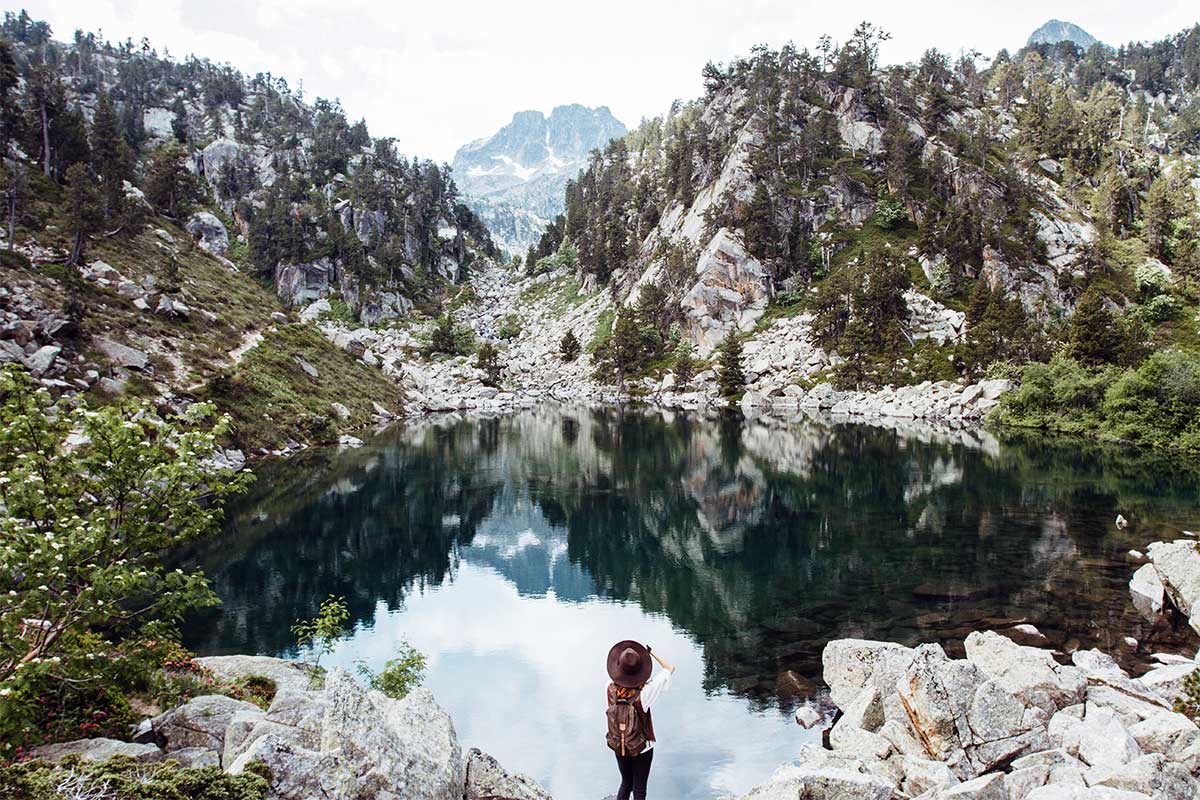What is responsible travel?
Published on December 17, 2024
Traveling is not only a pleasure, but also a true source of economic wealth creation all over the world. A sign of wealth, freedom, and modernity, traveling is an integral part of the lives of many world citizens. Is it possible to travel responsibly in an era of such globalization? Indeed, in 2017, there were 1.5 billion tourists for 1.2 billion in revenue according to the UNWTO (World Tourism Organization). The economic benefits are immense. But, for several decades, mass tourism has had harmful consequences for the planet, such as air and ocean pollution. Sometimes, the tourism industry involves local workers in often questionable working conditions. Moreover, some tourist activities have no direct impact on local communities. But, fortunately, this is not inevitable!
A new form of sustainable tourism has emerged in recent years. It focuses on promoting the local economy, ethical development, solidarity, and fair trade. Sharing, beautiful encounters, and respect for the environment are the key words of this mindset.
Here is everything you need to know about responsible travel.
Responsible travel, an ethical approach
There are many actions to travel responsibly. The responsible awakening of tourism has been underway for several years already, but it is starting to become more widespread.
In 1999, the UNWTO drafted the Global Code of Ethics for Tourism. It aims to guide both the actors in the sector's development and tourists themselves towards tourism that minimizes impacts on the environment, cultural heritage, and local people.
This ethical charter is based on the following principles:
- The tourist must contribute to mutual understanding and respect between people and societies
- Tourism must be a vector of individual and collective fulfillment
- Tourism is a vector of sustainable development
- It uses the world's cultural heritage and contributes to its enrichment
- It is beneficial for host countries and communities
Traveling in a responsible and sustainable way requires carrying the same values you wish to experience during the trip. Respect, preservation of the environment, the desire to share and meet local people are the pillars of alternative tourism. The challenge is significant: it is about traveling while respecting the economic development of the country visited and preserving cultural and natural resources. (10 tips for eco-responsible travel)

Here are some points that will give you an idea of what responsible commitment in travel involves:
- Get well informed about the destination
- Choose serious and committed professionals
- Take only the essentials
- Learn about the customs and traditions of the local population
- Taste the local cuisine
- Find out about tipping
- Enjoy authentic accommodation options
- Sort your waste
- Respect posted rules
- Pay attention to your water and energy consumption, especially in countries that lack them
- Do not take "souvenirs" from natural areas
- Buy objects at their fair value to support the local economy
- Prefer donations to competent associations committed to species preservation
- Report abuses against people, animals, or the environment
- Minimize travel and greenhouse gas emissions, and pay a carbon tax to offset
- Share your experience with other travelers to raise awareness about responsible travel
What are the forms of sustainable tourism?
With growing demand, the offer of responsible tourism is increasingly diverse. Here is a non-exhaustive list of the different forms of travel that sustainable tourism can take:
Ecotourism
This is tourism focused on sustainable development, aiming to preserve biodiversity and the cultural resources of a natural area. Awareness of these issues is essential. Hiring a local guide to visit a national or regional park is an example of an ecological approach that supports the local economy.
Ecovolunteering
These trips take the unique form of helping scientists on site. It is a good way to access protected natural sites that are off-limits to tourists. Scientific research programs rarely have enough funding, which is why volunteers are welcome.
Solidarity tourism
Supporting local development projects, blending in with host populations, solidarity tourism is centered on encounters and people. Staying with locals, living at the pace of the locals, participating in customs... The tourist is invited to live as close as possible to local populations. Example: solidarity trip to Madagascar
Community tourism
Its goal is to involve local populations in the development of tourism. The local population is therefore central to this experience and carries the projects. Example: share a community experience in Bolivia
Participatory tourism
There are many possibilities to accomplish a participatory responsible trip: from "couchsurfing" (staying anywhere in the world for free directly with locals) to "wwoofing" (Working Weekend in Organic Farms), traveling while staying directly with locals has never been easier. Being accompanied by a local (called a "greeter") is increasingly common in tourism. Free, authentic, and flexible are the key words of these practices, which are rooted in meeting and sharing.
Slow tourism
More than a program, it is a state of mind. Slow tourism favors "taking your time", encounters, local means of transport, local gastronomy... Quality is more important than the quantity of travel experiences. Ideal for disconnecting.
Humanitarian travel
This is combining travel with giving your time to help organizations on the other side of the world. Or even agro-tourism... The possibilities for traveling differently are endless!

What destinations should be favored?
Costa Rica, the Galápagos, and Nicaragua are references in terms of alternative tourism. But in reality, it is possible to travel differently all around the world!
You have to be creative and create your own tailor-made trip: why not organize a responsible trek in Nepal, or even participate in the protection of elephants in Asia? These off-the-beaten-path trips allow you to discover magnificent landscapes while having a clear conscience. Don't hesitate any longer and ask our local agencies for the most beautiful trips. You will have to dare to get off the beaten track and become true world travelers, eager to have an impact through your actions.
Photos (c) Lightscape – Unsplash (c) Jan Phoenix – Unsplash (c) Abigail Keenan – Unsplash (c) Haryo Setvadi – Unsplash
A website by
Customize your trips with Quotatrip and receive tailor-made offers directly in your inbox.